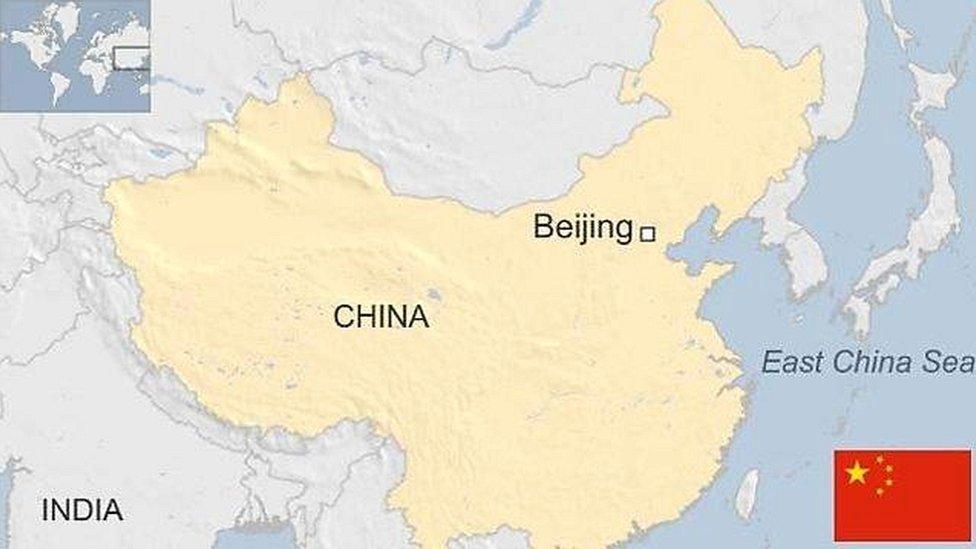China school milk: Social media users up in arms over 'hush-up'
- Published
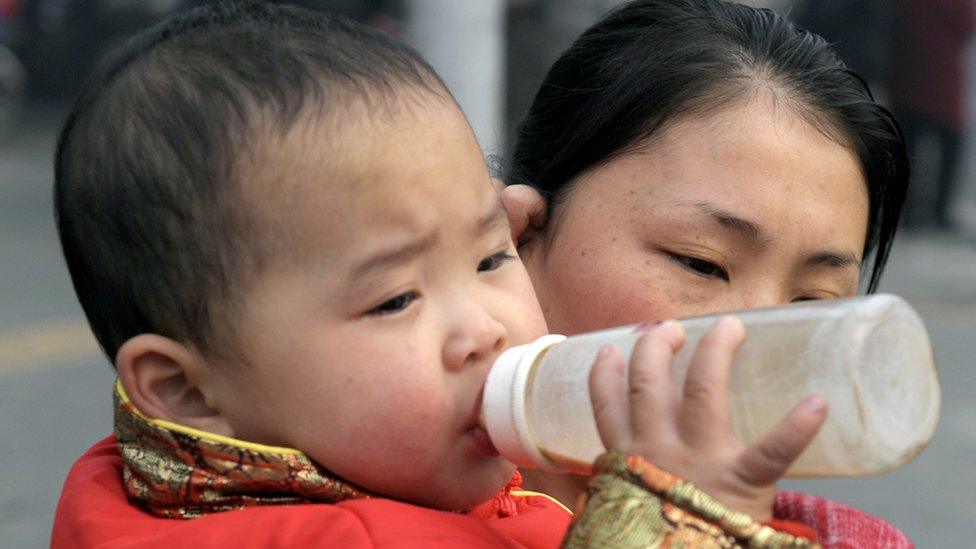
Social media users are accusing the authorities of trying to hush-up the affair but they deny this
Social media users are up in arms about a milk substitute that appears to have harmed dozens, and possibly hundreds, of preschool children in southern China.
Users of the popular Weibo and WeChat platforms are sharing pictures of toddlers with swellings, nosebleeds and fever in the Guangxi region.
They say the ailments are the result of nurseries feeding the milk substitute to children.
Officials strenuously deny, external there are problems with the product but this has only prompted social media users to accuse the authorities of trying to hush-up the affair.
'Harmful, unknown'
'Zhang Rong' uploaded pictures to the mobile messenger app WeChat from a nursery in Liuzhou, Guangxi.
"In Liuzhou, dozens of sinister nursery personnel have given children three harmful, unknown products instead of milk over a period of time," she said.
"The children have suffered a variety of symptoms," she added, sharing pictures of a child with blood pouring out of his nostrils.
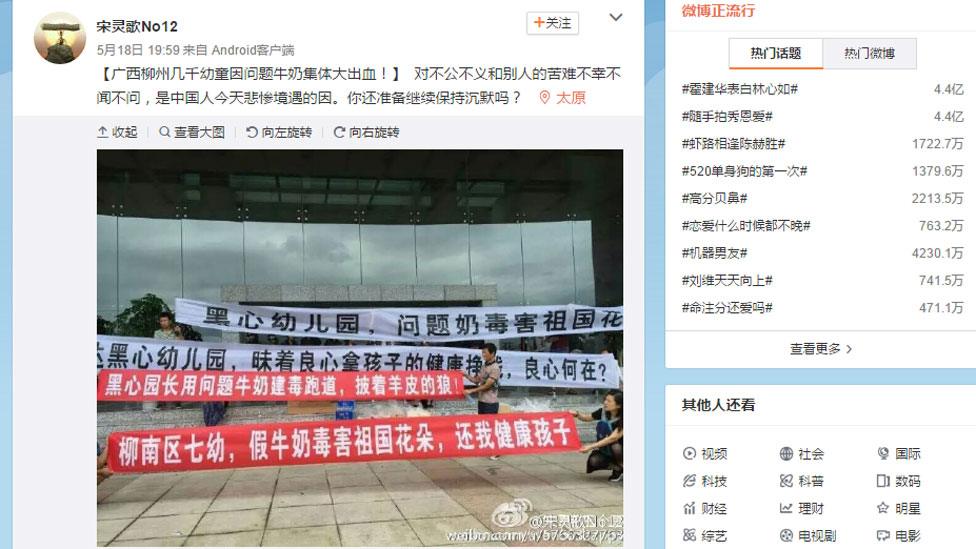
Images emerged appearing to show people holding protest banners
The image was uploaded by Song Lingge No12 to the Sina Weibo microblog and shared more than 5,000 times.
Her post prompted other users to share pictures of other, similarly affected children.
Liuzhou-based Suya shared pictures of a child with swollen eyes and a fever.
Another user from the region, SmallUniverse Explosion, uploaded pictures of a third child, and pictures of what appear to be protest banners outside the school.
'This tragedy will repeat itself'
The affair has had little coverage in China's mainstream media.
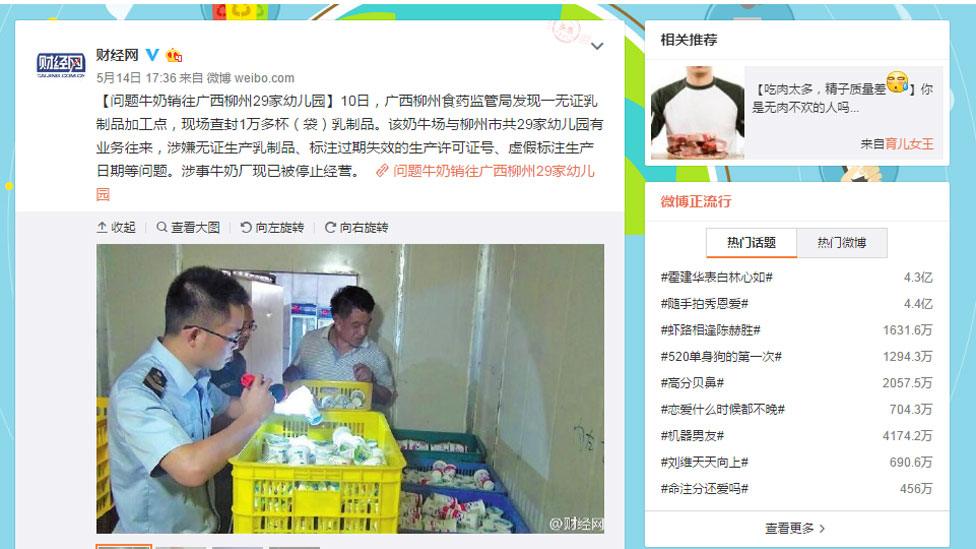
Caijing magazine says that thousands of containers have been seized
Independent magazine Caijing and the state-owned Global Times say an unlicensed "dairy" supplied the milk substitute to 29 nurseries, and that more than 10,000 individual containers were seized.
"Such a bad thing; how is this not trending?" social media user La Wule asked.
"If the government does not handle this correctly... this tragedy will continue to repeat itself," said Chouqin123, adding that such scandals had long been a problem in China.
In 2008, hundreds of thousands of children suffered kidney damage because of traces of melamine in infant formula.
Four years earlier, fake formula resulted in the deaths of 12 infants.
Denials by Guangxi official that harmful substances have been distributed only serve to further frustrate social media users.
China News Service agency reports that tests for 13 substances "including arsenic, lead, copper, benzoic acid and protein... detected no toxic and hazardous substances, or illegal additives".
The report suggests that problems arose because the supplier had not complied with recommended protein levels.

The hashtag #MilkProblemFlowsIntoPreschools has generated millions of reads
Social media posts using the hashtag #MilkProblemFlowsIntoPreschools have so far received more than 2m reads. Many of them criticise the authorities for "silencing" the scandal.
The Shanxi Medical Students Association asks: "Are you ready to continue silencing it?", adding that it is likely that "thousands" of students have been affected in the region.
OLST agrees, saying, "This is definitely not limited to 29 nurseries."
And LiuJunL adds that "microblogging is more effective than the police" in uncovering the truth.
BBC Monitoring reports and analyses news from TV, radio, web and print media around the world. You can follow BBC Monitoring on Twitter, external and Facebook, external.
- Published24 June 2015
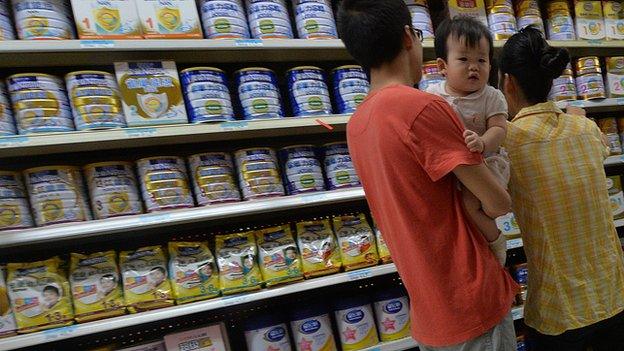
- Published25 August 2023
